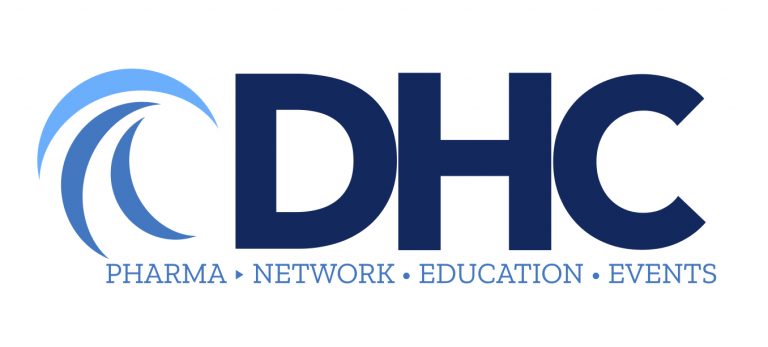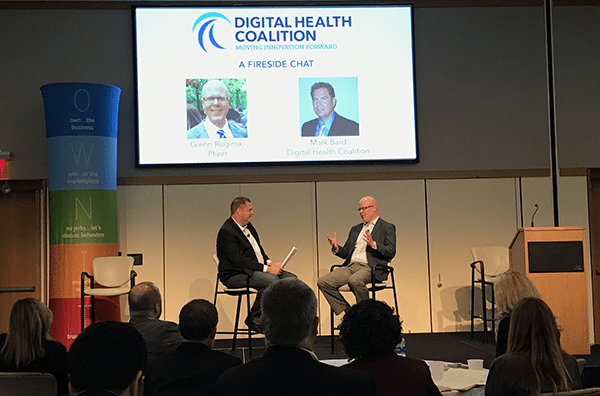
Digital Health Coalition Newsletter – March 2019

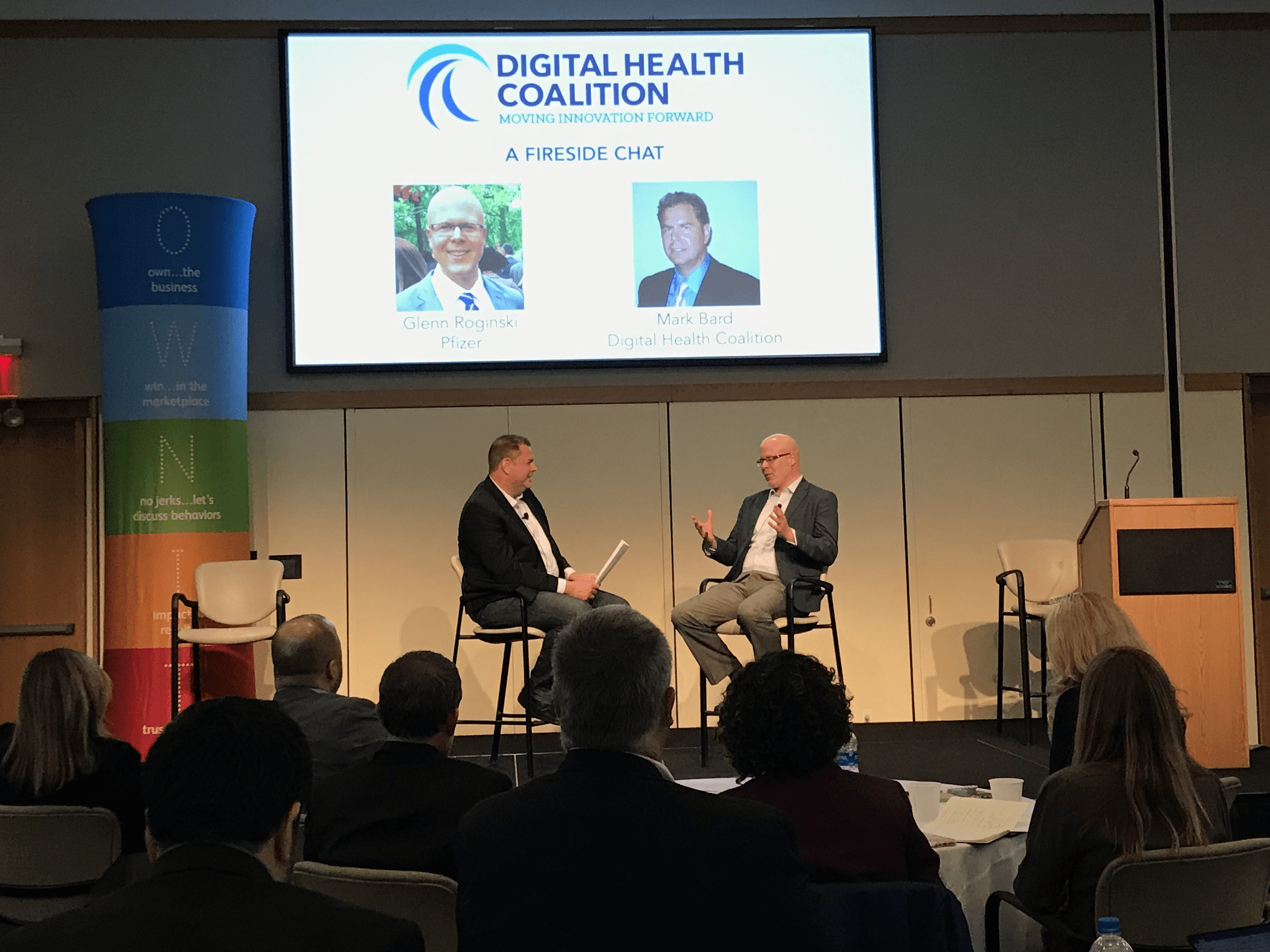
FEATURED CONTENT: An Interview with Pfizer’s Glenn Roginski — The Future of Pharma Media
 The DHC kicked off our 2019 Summits with the DHC East Coast Summit at Pfizer in mid-March. We were joined by over 100 DHC members, partners and industry leaders. Experts shared thoughts on transforming culture and agile marketing, encouraging marketers to “gather the team and go ahead and try!”… the idea of failing fast is an encouraged part of this approach. Content also covered how to structure successful agency relationships in 2019 and the tactical applications of AI & machine-learning. Attendees also heard from thought leaders on how to measure & test digital innovation, as well as keeping up with the rapid pace of the social media landscape. Our afternoon concluded with a signature DHC Fireside Chat, featuring an interview with Mark Bard (DHC Co-Founder) and Glenn Roginski (Director, MCoE-Media, Pfizer). Their conversation focused on the future of pharma media, drawing on Glenn’s impressive background at GSK, J&J, and Pfizer. We are happy to share that interview with you here.
The DHC kicked off our 2019 Summits with the DHC East Coast Summit at Pfizer in mid-March. We were joined by over 100 DHC members, partners and industry leaders. Experts shared thoughts on transforming culture and agile marketing, encouraging marketers to “gather the team and go ahead and try!”… the idea of failing fast is an encouraged part of this approach. Content also covered how to structure successful agency relationships in 2019 and the tactical applications of AI & machine-learning. Attendees also heard from thought leaders on how to measure & test digital innovation, as well as keeping up with the rapid pace of the social media landscape. Our afternoon concluded with a signature DHC Fireside Chat, featuring an interview with Mark Bard (DHC Co-Founder) and Glenn Roginski (Director, MCoE-Media, Pfizer). Their conversation focused on the future of pharma media, drawing on Glenn’s impressive background at GSK, J&J, and Pfizer. We are happy to share that interview with you here.
Mark Bard: If we go back to the year 1999, Y2K, we weren’t sure if we were going to make it another year – and DTC (Direct to Consumer) is still emerging. We were still complaining about all the commercials, the late-night jokes and all that fun stuff. Let’s think about from that time up until now, and we think about some of those big-picture macro changes. From your perspective, sitting in media across GSK, J&J and now Pfizer, what’s the biggest change over that time?
Glenn Roginski: Yeah, it is kind of funny if you look all the way back. I started in the agency business and working on Merck Vioxx was my first foray into DTC. This was, I think, 1999/2000. I was 22, 23 years old, had a $200 million budget that was entirely on TV and print. I was running a $20 million newspaper campaign with four-color double truck spreads back in the year 2000 for Vioxx. I think The New York Times framed one for me behind glass.
Fast-forward a few years after that, it was still heavily TV and print. I think that there was a separate digital team that started to do some search and some email marketing. Seven, eight years later digital started to become a big part of the media mix. Once that happened, then it really fast-forwarded. I think obviously the biggest thing was the advent of the smartphone. Once we went from Blackberries to the iPhone, everything exploded from there. It was kind of a blur.
Mobile marketing, programmatic, social, they all seemed to evolve over time a little bit. Programmatic, especially the last five years, blew up. I think mobile, go seven years back from that. Now, you continue to see – if you fall asleep for a week or take a vacation and come back, things are different. I think it’s just going to continue to rapidly evolve. As we go forward, the biggest thing I see on the horizon is just the disruption of the TV mass media approach that we’ve had in pharma since 1997, and going back in the history of advertising, since the soap opera days of P&G back in the ’50s. Now we’re really starting to see more over-the-top ads and TV adsbeing served digitally. Supposedly the cord-cutting numbers are overestimated, but it depends on what source you have.
Eventually at some point in the next three to five years, I think TV’s going to look a lot different. It’s going to look a lot more like what we see in the mobile app environment, programmatic, a lot more targeted and that lack of the ability, other than some live sport types of things, to go out and hit that mass audience all at once like we have in the past.
Mark Bard: You mentioned the movement from the phone to the smartphone. One term we’ve heard recently is the term post-mobile era. What does that mean, this idea that we’re not saying mobile first? It’s not the key phrase anymore. What does that mean?
Glenn Roginski: You think about the way that people interact with their devices. I think if you look at people work in an office setting you still see a lotusing laptops, but if you look at most people outside of that world, the mobile phone is the way that they interact with the internet. They are starting to do more voice. That’s the dominant device. We really have to design things that are going to work across these devices – but think about it from the lens of loading pages fast, understanding what people are looking for on that device. It might be very different than if they are sitting behind a laptop and have the time to research things. I think it’s just understanding that and then helping design the experience for what the consumer’s looking for.
Mark Bard: This is a bit of a touchy subject, but it’s one that has huge implications — this idea of partner management and client partners. When you think about your experience over the past decade and going forward, how do you think about the agency and media partnership?
Glenn Roginski: I’ve been on both sides of it recently. I would say at Pfizer, we’ve been with our media agency, Carat, I think for 20 years. There’s just a real sense of trust. They probably know our business better than anyone. As we know, in pharma, brand managers move around a lot. Some of the people at Carat have worked on our brands for many years, and can really help provide a history for the marketers new to the brand team. We also have a no-surprises policy, too. Stuff gets screwed up from time to time. The policy is look, something gets messed up, let us know right away and then we’ll work to fix it together. Don’t try to hide it. I’ve seen agencies do that, too. They try to hide stuff, it festers, and it blows up.
The other thing is I think there are a lot of advertisers who are just too quick to try to cycle through agencies. They don’t give them enough time. They’re very driven by procurement to cut costs and squeeze margins. Advertising is a people-driven business. Yes, technology has become a bigger part of that, but the people at the agency do more than just enter those Facebook and Google buys and there’s a lot of expertise that goes into that. If you shortchange your agencies, you’re going to get a shortchanged outcome. You really have to think for the long-term and think for the partnership perspective. I’d say that’d be true for media vendors as well.
Mark Bard: Tim Cook at Apple had some very vocal opinions on data privacy in recent articles. This really does have a huge impact on healthcare and transparency. What does this mean as it relates to consumer choice? They’ve taken a very different approach than other companies.
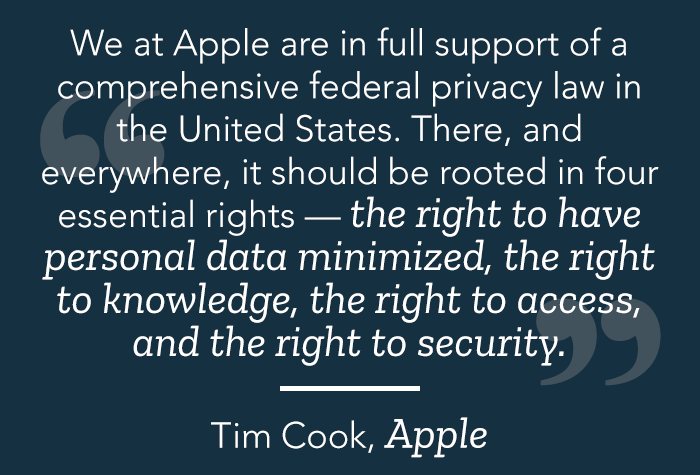
Glenn Roginski: Absolutely. I think it’s been a bit of Wild West, if you will, in the US, per se. I won’t touch on Europe and GDPR and all that. I think Tim is totally right. I think data privacy and security is a fundamental right or should be a fundamental right. I think what he said, I totally agree with. People need to have the ability to control who sees the data –what companies are seeing their data, why they’re collecting it, what are they doing with it, and having the ability to see what data’s there and either correct it or delete it if that’s the person’s choice. Those are all the points I think Tim talked about.
Today it’s just the Wild West. There are data brokers that work in the industry who wouldn’t have any idea of half the names of who these companies are and what kind of data they worked on. One of the things that I think is going to change that is legislation, which has already been introduced obviously in California. I think I saw the IAB’s out there today talking to the legislature in Sacramento to try to help shape some of that policy but ultimately, I think that’s going to be the impetus for a US nationwide policy on privacy, which I really think is a good thing. I think there’s been just too much open to interpretation
At Pfizer, we have what we call the “patients first approach” that guides our marketing, that’s our true north. I think when we apply that, when we think about programmatic and interest based advertising, we really do take that lens and we try to think about it from the perspective of “if this patient was my mom or my grandmother”. Obviously, most people don’t know what type of things are happening with their data and we really want to stay on the right side of that from an ethical perspective. I’m hoping these laws will be designed by people smart enough to help make them work that way, empower people to know what’s happening with their data and how to then correct it, control it, delete it if they choose to.
It’s one thing if it’s just hackers guessing passwords and things like that, but when you’re talking about health data, I think it’s a totally different thing. I hope Mark Zuckerberg is honest about the privacy approach now. I think Google, as you mentioned, has a lot of people seeing what’s out there on them, and I think Facebook does that as well in terms of what they’ve collected on them.
Mark Bard: You can download a file on your history with them.
Glenn Roginski: Yes, it’d probably take you a week to read through it all. It’s one of the things I think people tend to think about these tech companies because it’s been in the news a lot with the data breaches, but it’s all the other places that they don’t think about. People will trust pharma companies and doctors and healthcare companies more so than tech companies according to the Rock Health survey. The thing that people don’t realize is that the doctors, the hospitals, the health systems, they are monetizing a lot of this data as well through third parties. People don’t know that. They don’t know that their data is being taken and yes, it’s being put up in an aggregated basis, but people don’t know that, and they should have the opportunity to know that. They should have the opportunity to opt out of that.
When that’s being done, again, to create a broad target or anonymized model, maybe that’s okay. When it’s being done to track if their exposures to ads results in them actually getting on the script. I don’t know if that’s okay. It’s an ethical quandary, if you will. We don’t do match-backs, but I know that other companies do I know it’s a big thing in the industry. Everybody wants to know ROIs and that’s the promise of the companies offering the matchbacks. Again, we don’t use them; we rely on market mix models. It still gives us direction as doclick-based KPIs. Again, I think it’s just the patients first approach.
Mark Bard: They trust the physician first; we all get that. They trust insurers. They even trust when it comes to data at pharma. Where’s the role or responsibility of those different stakeholders if they are part of the process of getting that opt in along the way in terms of the education of – no one’s reading an actual terms and conditions or privacy statement ever. Where’s the education in a consumer-friendly way of saying … we’re using your information this way, as a pharma company, for example?
Glenn Roginski: To your point, no one sits there and reads all the Ts and Cs. I think it is incumbent upon marketers, advertisers, publishers to be really clear, to have really clear opt-in statement that is in English, plain English, not four pages long. Obviously, every pharma company has a lot of lawyers. There’s definitely a lot of legalese. I think as an advertising industry, too, we’ve had the Ad Choices program that provides privacy notice and opt-out, but there is still such low awareness of that. I think for the ad industry, there’s probably some opportunity for some greater awareness and public service type advertising to raise awareness. Maybe that’s the one good thing, the silver lining about all the data breaches on the tech side and everything that’s been in the news. It’s raised some awareness, so hopefully people will start to pay attention to that more.
Again, I think it’s probably only a matter of time before a US privacy law passes, but hopefully that does give some plain language controls to consumers that will make it easier for them to understand what type of data’s being collected and how it’s being used and how they can opt out.
Mark Bard: Social – it’s one of those phrases that some folks in the audience, their eyes roll and say “no, I can’t talk about this anymore”. So much has happened in the past 12, 18 months in social in terms of understanding the platforms. When the DHC was founded eight years ago, one of the key issues was social and FDA guidance and regulations, and the theory was if we have a little more cover, we can do more in social. The reality was that even the companies that had cover, a lot of them didn’t do anything anyway because they didn’t have the passion or the appetite to do it.
As an industry, we struggle. We’ve been doing some ongoing bench-marking projects where we try and compare pharma to other industries, and that hasn’t worked for the past eight years because you see so much happening in terms of targeting and all the engagement and true customer experience type efforts in other industries. How do you characterize the pharma “state of social” today?
Glenn Roginski: I would probably put pharma and social in the adolescent stage, if you will. I think some companies have really moved the needle. Others I think have really stayed on the fence, and there’s some that are probably somewhere in the middle. Of course, it’s really hard to tell. The “info &ads” tab, is a helpful tool to see what some companies are doing, but it doesn’t always tell the whole story.
There are some brands that have really embraced it, and they have their social listening, so they can engage with consumers and react. Some just have it just to monitor for adverse event reporting. Then there’s others that just use it as a tool for more targeted advertising to more iterative versions of advertising. I think a lot of the challenge is that social continues to evolve and change. The news feed now is moving to the stories approach and more ephemeral approach. I think that always makes it a little more challenging for pharma. I think again, we’re starting to see brands experiment with that, so there’s always going to be some that are on the bleeding edge of risk-taking, some that are very, very risk-averse, and then I think you start to see the middle move more towards the more common aspects of social. I think we’re in the game now. We’re maybe not doing the type of things that a retail or e-commerce company can do, but social is pretty much a tool in the arsenal at this point.
Mark Bard: One of the comments Zuckerberg made recently was the importance of the private messaging – Instagram and WhatsApp. That changes the game from a targeting perspective. How do you do hyper-targeting within these messaging apps, which is much more of a personal space?
Glenn Roginski: I know Facebook has been trying to monetize Messenger a bit more now, but I think to your point, environmentally it’s different than being a newsfeed. The way I look at it is a lot of pharma brands have done successful email marketing campaigns, some SMS type of campaigns. I would look at it akin to that, where it’s maybe more of a relationship marketing type of approach versus a blunt force displayed advertising approach.
Mark Bard: You’ve already initiated a relationship somewhere.
Glenn Roginski: Yeah, exactly. There have been some pharma brands – and I know because Facebook has shared some of them with me, but I haven’t really seen it done en masse. Some will also use machine learning – a lot of prebuilt answers, to design a Chatbot approach where a consumer can type something into Messenger, and Messenger will write back and give them some options to select from. It could be just engagement if a consumer has some questions about the cost options for the drug and then Messenger can feed them back some information about co-pay cards, or if they want to learn more.
Mark Bard: Let’s discuss programmatic –I know that’s a topic you’ve forgotten more than I know about. A concept we often hear from pharma is “my agencies and partners keep up with where that space is going”. You used the adolescent stage for social. Where’s programmatic today? We know it’s exploded overall, and the assumption is that it all becomes programmatic at some point. Where’s pharma in that mix? What are some of the concerns we need to be aware of? Obviously, pharma is different in terms of the hyper-targeting.
Glenn Roginski: I would probably separate programmatic, which to me is the transactional part versus interest-based advertising, which is you bringing the data in to targeting. Programmatic to me – outside some of the endemic condition content buys where you’re trying to share a voice on the condition that your brand is treating – programmatic is really the display advertising world now. There’s very few paper IOs (orders) that still get sent out. It’s social and it’s programmatic. For pharma, at least in my experience, that’s the case as well. I don’t think there are any pharma companies that are not doing programmatic to that degree.
Again, at Pfizer, we take a very high road in what we’re doing. We also have a very knowledgeable media department that digs into these things. I think that a lot of companies don’t have the type of resources that we have. They may not have the bandwidth to dig into what’s out there. There’san organization that’s called the NAI, the Network Advertising Initiative, which actually applies more to tech providers and publishers, they have a very robust code of conduct and its very specific information about how to deal with healthcare data and other sensitive data. For sensitive conditions like HIV or oncology, they say a patient has to opt-in to even target these kinds of ads to them. We go a step further to say that for some of the conditions it’s probably not appropriate to necessarily do this (targeting ads to those with sensitive conditions) even with an opt-in.
I think there’s a lot of pharma marketers who get excited about the possibility of this targeting. They don’t think many marketers view things through this patients first privacy framework , I’m sorry to say. For example, if I were a cancer patient and this is a shared computer that I use in my dorm or at my work or I’m an HIV patient, I don’t necessarily want people to know that I have this condition. Then the ad happens to just pop up on my computer one day, or in my phone. We realize these are very, very private and sensitive things that people have to deal with. I think from that lens, I think pharma marketers –don’t really think too much through beyond just the regulatory lens, and apply a“sensitivity lens”, I’ll call it.
Mark Bard: What do you tell someone just entering the world of pharma media today?
Glenn Roginski: Assuming they’re going to pharma marketing, I think the biggest thing for me is obviously everything’s rapidly changing. The four Ps, while probably still the basis of marketing, is maybe a little bit outdated. I think the biggest thing for me, if they’re still in business school, is take a course in ethics. It took an awesome ethics course while at UNC. It still stays with me today. We think through all this technology, all this data, the way we, as marketers, are pulling the strings on all this – if we don’t really think carefully about what we’re doing, we have the ability to really hurt people. We have to think through that from the ethical perspective.
ADDITIONAL INSIGHTS FROM DHC PARTNERS
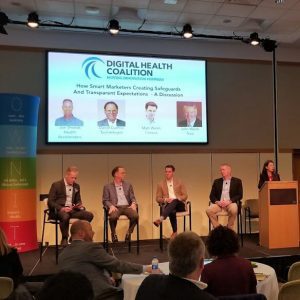
Digital Health Coalition Moves Innovation Forward at East Coast Summit
Via Intouch Solutions | Website →
Last week, Pfizer graciously hosted the first DHC Summit of the year at its world headquarters in Manhattan. Themes of the day centered around innovation, customer experience, artificial intelligence (AI), machine learning, and social media. Intouch Solutions is a proud member of the Digital Health Coalition, so EVP Wendy Blackburn was there to listen, learn, and capture what she saw as the most salient points of the day in order to bring them back to you here. Read more here →
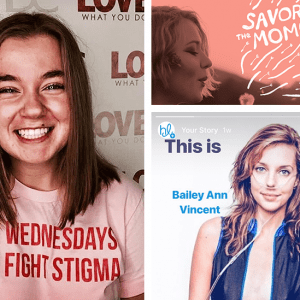
2019 Social Influencer Trend Report
Via Healthline | Website →
Social influencers who advocate within their condition communities are making a tremendous impact on health and wellness decision-making. Should they be a part of your pharma brand’s marketing plan? Healthline’s report explore health influencers’ strategies and helps pharma marketers tap into the power of their platform and voice to drive health actions. Read more here →

SXSW Unpacked for DHC Members
Via closerlook | Website →
At closerlook, we feel the best way for our agency and for our clients’ brands to stay competitive is to attend events like SXSW. We sought out sessions covering a range of topics including Digital Health, Blockchain, Empathetic and Interactive Storytelling, Diversity and Inclusion, AI, and Gamification. We gained new perspectives that will help us bring innovative ideas and out-of-the-box creativity and continued purpose to our work. Click here for the three main themes we took away from our week at SXSW. Read more here →
DHC EVENTS COMING SOON
DHC PARTNERS IN THE NEWS
| Crossix launched DIFA TV™ – Understanding Effectiveness of National TV Campaigns | |
| Via Crossix | Read More → |
| The Moral, Scientific and Business Case for Practicing More Inclusivity in Pharma |
|
| Via imre health | Read More → |
| Lauren Boyer on Instilling an Innovative Advertising Approach | |
| Via Underscore Marketing | Read More → |
| New Collaboration between American Medical Association and PatientPoint | |
| Via PatientPoint | Read More → |
DHC CONTENT
| DHC at EyeforPharma | |
| See DHC Co-Founder Mark Bard and DHC Health Scholar Tricia Brown at EyeforPharma on April 17th in Philadelphia. Registration Discount Code: Save $200 with code DHC. | |
| Learn more → |
